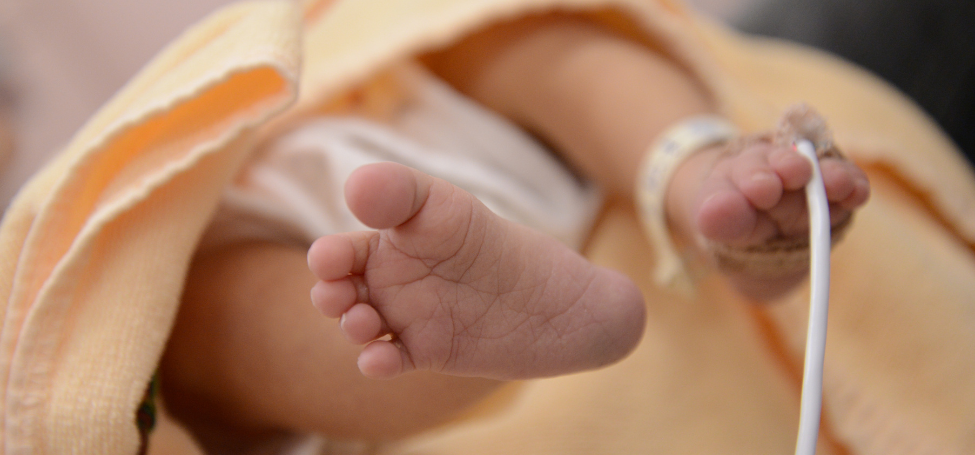The American Academy of Pediatrics (AAP) recommends breastfeeding exclusively for the first six months and continuing to breastfeed while gradually introducing solid foods for at least the first year. Whether you’re nursing your baby or providing them pumped breast milk, there are lots of benefits for moms and babies when it comes to breastfeeding.
Breastfeeding Benefits for Babies
- Breast milk is known as “liquid gold” for a reason - it is easier on your baby's digestive system, has all of the nutrients, vitamins, fats, and proteins your baby needs, and even has antibodies to help keep them healthy. Some of the benefits your baby receives from breast milk will last a lifetime.
- Research shows that rates of obesity in breastfed infants are 15-30% lower than babies who were formula-fed. This could be because breast milk provides babies with healthy gut bacteria, or because breast milk has more leptin, which regulates appetite and fat storage.
- The antibodies found in breast milk can help babies’ immune systems develop and help them fight off infections and diseases. Babies who are given breast milk have lower rates of colds, infections, diabetes, diarrhea, and fewer incidences of Sudden Infant Death Syndrome (SIDS).
- Breastfeeding can reduce a baby's risk of ear infections, eczema, asthma, cancer, allergies and more - and some of these benefits last their lifetime.
- Because breast milk is easier to digest, babies have fewer issues with gas, rashes, and colic.
- Breast milk is terrific for your baby’s brain development. Studies show that breastfed babies have more developed growth in regions of the brain. This can improve the baby's emotional functions, language, cognition and more.
- Breastfed babies benefit from getting lots of calcium and Vitamin D, which helps them to have strong bones.
Breastfeeding Benefits for Moms
In addition to providing an ideal source of nutrition for infant feedings, breastfeeding also has lots of women's health benefits!
- Breastfeeding mothers see faster rates of postpartum healing. The act of breastfeeding causes the hormone oxytocin to be released, and oxytocin helps the uterus shrink back to its normal size, and it also helps reduce uterine bleeding, as well as preventing postpartum depression. It’s also the hormone behind the milk ejection reflex (MER), more commonly known as a “letdown.” Oxytocin from breastfeeding can even provide anti-anxiety benefits that are long-lasting.
- Breastfeeding can help aid the maternal bond with your baby because it will also cause you to release another hormone called prolactin. It will help you relax and bond with your baby. Relaxation, plus the warmth and serenity of having skin-to-skin contact with your baby can really encourage mother-baby bonding.
- Breastfeeding is linked with lower risks of the mother getting either breast cancer or ovarian cancer and other diseases. Estrogen levels are much lower during breastfeeding, which can delay the return of your period during postpartum. This also keeps estrogen low in the mammary fat cells that would normally “feed” cancerous dispositions. During their periods, women lose iron and calcium, which can increase the risk of osteoporosis and bone brittleness, but breastfeeding, however, can lower those risks by changing a woman’s uptake ability to absorb calcium. After breastfeeding for 14 months, a woman could reabsorb all of the calcium she ever lost.
- Mothers who breastfeed for a year or more may have additional health benefits, including lower rates of high blood pressure, heart disease, diabetes and more. Women who were diagnosed with gestational diabetes are twice as likely to develop type 2 diabetes. Breastfeeding helps regulate insulin levels, which drastically reduces their risks for developing diabetes.
- Though recovery and spending time with your baby should be higher priorities, breastfeeding can help women gradually lose their pregnancy weight because it burns 300-500 calories per day and can improve moms’ metabolic rates, and protect them against cardiovascular disease.
Save Time & Money
- Colostrum and breast milk contain all of the nutrients your baby needs, so there’s no need to stock up on expensive infant formula. The average cost of formula feeding a baby is nearly $1,750, but breast milk is free! Getting a breast pump and supplies can be an expense, but oftentimes those can be covered through insurance.
- Your breast milk will always be the right temperature for your baby (unless it’s breast milk you’ve stored in the refrigerator or freezer). Nursing your baby gives you more time to bond with your baby, without having to clean up afterward.
- In addition to less cleanup, there’s also less prep work. You can quickly calm your baby - meaning they should cry less - because the only hold-up is getting your baby access to your breast.
- While traveling near or far, you won’t have as much stuff to lug around if you’re breastfeeding your little one. You also won’t have to worry about running out of formula because your breast milk will be on tap when your baby needs it.
- Breast milk is better for your baby’s health and immune system, and with a healthier baby, you’ll spend less time and money on prescriptions and pediatrician visits.
The decision on how you feed your baby is 100% up to you! Everyone from strangers at the grocery store to close family members will have different opinions about it, but you have to remember to do what’s right for you and your baby. For more information about the benefits of breastfeeding, please visit the CDC’s website.
About the Author
Ashley Georgakopoulos is the Lactation Director at Motif Medical. She is an International Board Certified Lactation Consultant (IBCLC) providing breastfeeding support with Genesis Lactation.
Information provided in blogs should not be used as a substitute for medical care or consultation.









